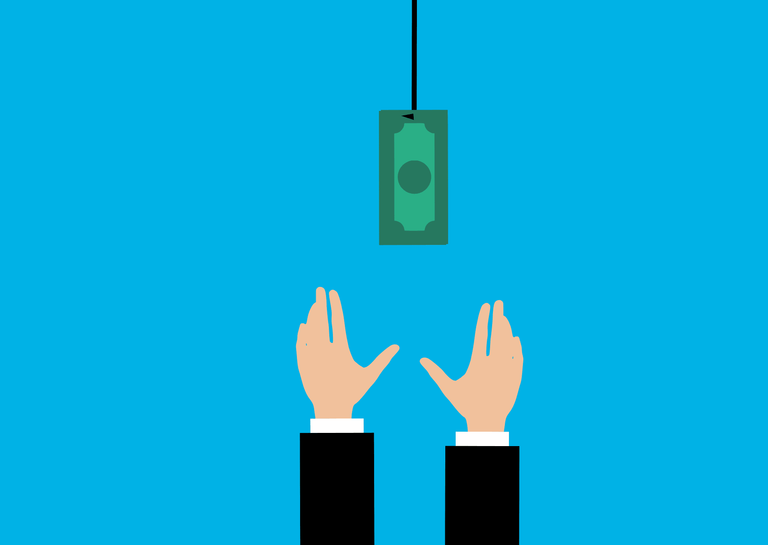Behavioral Economics : The Impact of Incentives on Consumer Behavior and Motivation
- GENERAL IMPACT OF INCENTIVES ON BEHAVIOR AND MOTIVATION
Incentives are a powerful tool that can influence human behavior and motivation. They can be used to encourage people to perform a particular action or to discourage them from doing something. Let's first discuss the impact of incentives on behavior and motivation in general, together with examples illustrating the same.
First, incentives can be used to motivate people to achieve specific goals. For example, a company might offer a bonus to employees who meet certain sales targets. This incentive can motivate employees to work harder and achieve their goals, as they know there is a reward waiting for them if they succeed. Similarly, schools might offer students prizes or awards for high grades or academic achievement, which can encourage students to work harder and perform better.
Second, incentives can also be used to discourage certain behaviors. For example, many governments around the world have introduced taxes on tobacco products, alcohol, and sugary drinks as a way to discourage people from consuming them. The idea is that by increasing the cost of these items, people will be less likely to purchase them. Similarly, some employers might impose fines or penalties on employees who fail to follow safety protocols or adhere to company policies. The threat of punishment can motivate employees to follow the rules and avoid penalties.
Third, incentives can also be used to encourage specific behaviors or actions. For example, many companies offer discounts or free products to customers who refer their friends or family members to the company. This incentive can motivate customers to spread the word about the company and bring in new business. Similarly, some employers might offer bonuses or promotions to employees who come up with new ideas or innovative solutions to problems. This incentive can encourage employees to think creatively and contribute to the success of the company.
Nonetheless, it is important to note that incentives can have unintended consequences. For example, a company might offer a sales team a bonus for every sale they make, which can motivate them to push customers to buy products they don't really need. Similarly, offering rewards for academic achievement can sometimes lead to a focus on achieving high grades rather than learning and understanding the material.
To summarize, incentives can have a significant impact on behavior and motivation in the general sense. They can be used to motivate people to achieve specific goals, discourage certain behaviors, or encourage specific actions. However, it is important to use incentives carefully and consider their potential unintended consequences.
- THE IMPACT OF INCENTIVES ON CONSUMER BEHAVIOR
Incentives are powerful motivators that can influence consumer behavior in a number of ways. Let's now discuss the impact of incentives on consumer behavior in specific detail with illustrative examples:
Price Discounts: One of the most common incentives that businesses offer to consumers is price discounts. Discounts can incentivize consumers to make a purchase by making a product or service more affordable. For example, Black Friday sales, which offer significant discounts on products, are designed to encourage consumers to buy more than they would otherwise. These discounts can be particularly effective when they are limited-time offers, as consumers may feel a sense of urgency to take advantage of the deal before it expires.
Rebates: Rebates are another type of incentive that can influence consumer behavior. A rebate is a refund of a portion of a product's or service's purchase price. For example, a consumer may purchase a computer and then receive a rebate of $100 if they submit a form and proof of purchase. Rebates can incentivize consumers to make a purchase by reducing the perceived cost of the product or service.
Loyalty Programs: Loyalty programs are another type of incentive that can influence consumer behavior. These programs reward consumers for repeat purchases or other types of engagement with a business. For example, a coffee shop may offer a loyalty program where customers receive a free drink after purchasing a certain number of drinks. Loyalty programs can incentivize consumers to continue to engage with a business, even if there are other options available.
Contests and Sweepstakes: Contests and sweepstakes are incentives that can encourage consumers to take a specific action, such as making a purchase or sharing information on social media. For example, a company may run a contest where customers who post a photo on social media using a specific hashtag are entered to win a prize. Contests and sweepstakes can incentivize consumers to take an action that they may not have otherwise taken.
Free Gifts: Businesses may offer free gifts as an incentive to consumers. For example, a beauty store may offer a free sample of a new product with a purchase. Free gifts can incentivize consumers to make a purchase, as they perceive that they are getting something extra for their money.
In summary, incentives can be a powerful tool for businesses to influence consumer behavior. By offering discounts, rebates, loyalty programs, contests, sweepstakes, and free gifts, businesses can incentivize consumers to make purchases or take other actions that they may not have otherwise taken.
Posted Using LeoFinance Beta

This post has been manually curated by @bhattg from Indiaunited community. Join us on our Discord Server.
Do you know that you can earn a passive income by delegating your Leo power to @india-leo account? We share 100 % of the curation rewards with the delegators.
100% of the rewards from this comment goes to the curator for their manual curation efforts. Please encourage the curator @bhattg by upvoting this comment and support the community by voting the posts made by @indiaunited.
There are some rebate program that will make you have more interest on a product/service